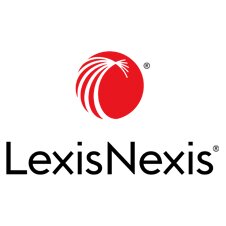LexisNexis discuss the new SRA rules – what will they mean from a practical standpoint?
The SRA is introducing new standards, that are scheduled to take effect on 25 November 2019, to allow solicitors greater flexibility in how they work and simplify accounting rules. These changes continue in the vein of a less prescriptive approach to regulation by the SRA, while making it easier for the public to gain access to justice and ultimately still safeguarding the interests of consumers.
From a practical standpoint though, firms need to think about how they can adhere to the seven principles set out by the SRA. Things like honesty, integrity, upholding public trust and so on are, after all, difficult areas to evidence – especially as they are so open to interpretation.
The risk to solicitors and law firms of course is that this kind of ‘open to interpretation’ regulation can be a double-edged sword – with no right and wrong, lawyers and firms need to think for themselves in terms of how they must act in order to comply in the best interest of the client.
These new rules, which essentially are a framework, will bring about a fair amount of change, and potentially, the best way to ensure compliance is to reduce the seven principles to a simple science. To this end, technology such as case management will play an instrumental role. Firms must leverage their current system to amend and create new processes, as applicable, to ensure compliance.
For instance, to demonstrate that the firm has acted in the best interest of the client, the case management system can be used to record the advice given, by automating and forcing the creation of attendance notes and /or letters, emails and updates at the right points in the case and matter lifecycle. So, in the event of a challenge, the firm can refer to the system for illustrations of best behaviours (date and time stamped) to evidence the considerations of the principle.
Similarly, how firms handle clients’ monies is a key area of consideration in the SRA rules. Processes such as recording receipt of money, ensuring that the funds are transferred into the right bank account, and so on can all be automated.
Establishing processes for maintaining confidentiality must be a focus for law firms. Technology can facilitate ethical walls, especially in situations where there are multiple parties acting on different aspects of the transaction. The case management system is ideal for setting up and maintaining data barriers and recording access trails, all of which are incredibly important to demonstrate compliance.
Fundamentally, case management technology can act as both a guide and an enforcer of regulation, without creating unnecessary friction and interruptions that regulatory compliance can sometimes create. By utilising the technology to embed processes for the seven principles, firms can make compliance par for the cause; and in the event of audits and queries, relatively painlessly provide audit trails and evidence in their defence. In addition to appropriate documentation and transparency, case management can provide the overarching supervision and governance oversight for both the solicitors working on the cases and the clients.
While the industry awaits further guidance from the SRA on these new rules, this is a good time for firms to start reviewing their existing business processes in the context of the new principles. In fact, firms will do well to undertake such process reviews at regular intervals on an ongoing bass. This approach will go a long way in helping establish a compliance posture that will positively impact adherence to other regulations as well – for example security and data protection for the GDPR.
By Simon Farthing, Commercial and Marketing Director, LexisNexis Enterprise Solutions



